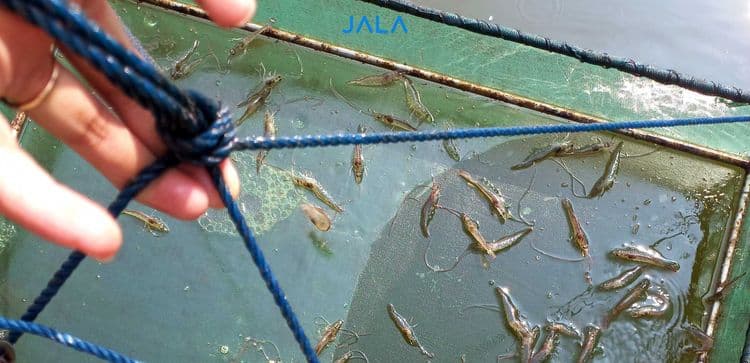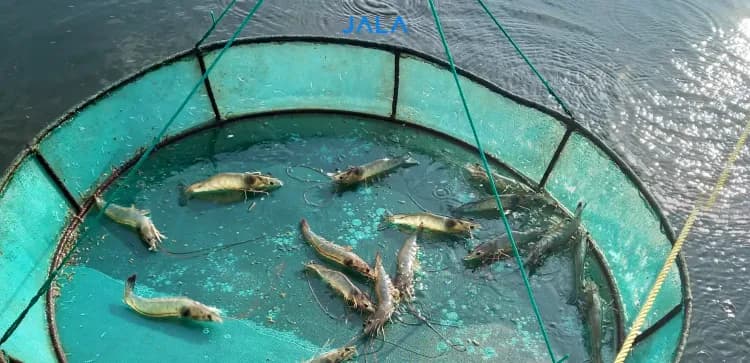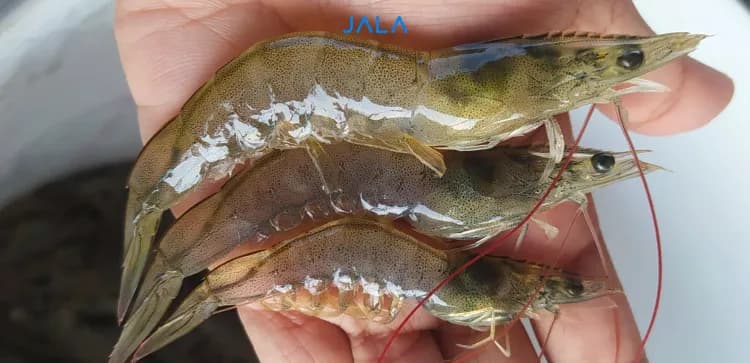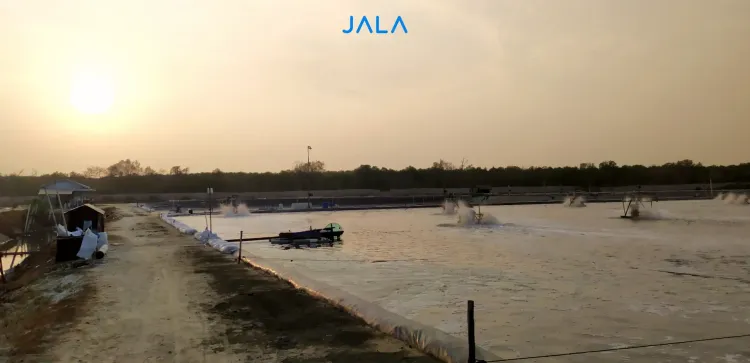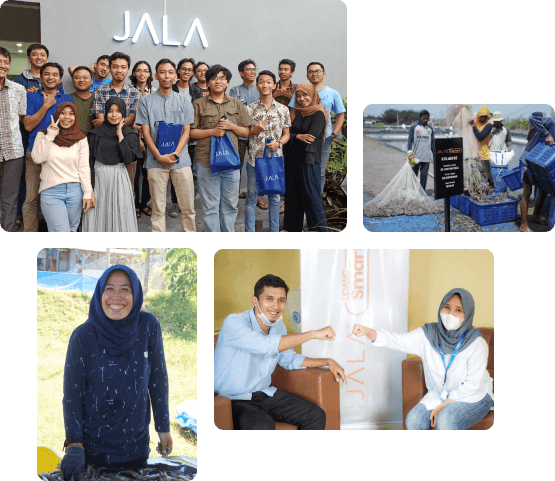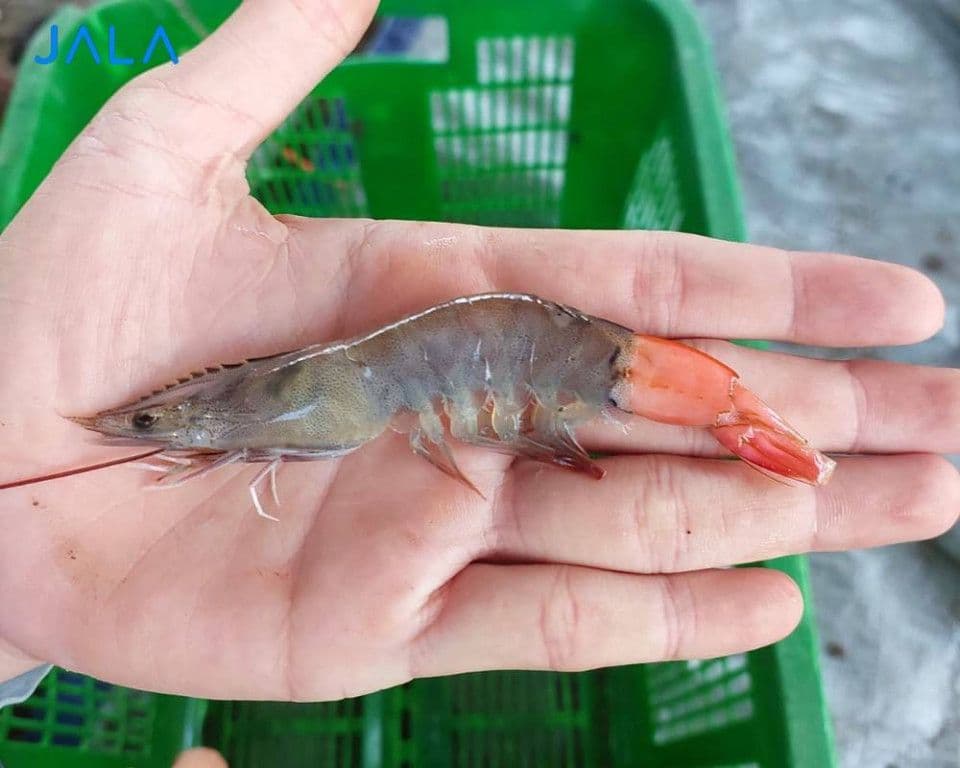
Cramped muscle syndrome (CMS) is a condition in which shrimp experiences cramped muscles which may be due to stress affecting the blood vessels. Muscle cramp in shrimp may occur during harvest handling. There is no fixed reason for muscle cramp in shrimp as it may also be a symptom of shrimp diseases such as myonecrosis.
In general, muscle cramp in shrimp is caused by stress due to several reasons such as lack of minerals like Ca, P, Mg, Se, Mn, and Zn in the pond water and feed, poor water quality, changes in pond or farm water temperature, poor feed quality, and other factors. Shrimp under 5 grams in weight (DOC 30-50) also often experiences muscle cramps, which may be a serious issue if it leads to mass mortality.
Here are the signs of muscle cramp in shrimp:
- Shrimp is unable or struggles to straighten its tail muscle
- The appearance of white bumps
- Shrimp's body is slanted when swimming. When only partially slanted, the shrimp may still be able to swim, but if the slanting occurs throughout the whole body, the shrimp can only stay at the bottom of the pond.
Early mitigations to avoid CMS in shrimp include implementing proper density in the pond to maintain its carrying capacity. Poor water quality may occur due to the density being too high, leading to waste accumulation in the pond. Accumulation of waste at the bottom of the pond leads to the production of ammonia, a toxic gas. Another form of mitigation is ensuring consistent aeration to maintain adequate dissolved oxygen in the pond and regularly changing the water.
By maintaining good water quality, shrimp cultivation will reach its expected productivity, minimizing the risk of shrimp disease infection.
Resources:
Mencegah Timbulnya Penyakit Myo di Tambak | ISW
Truong, H. H., Moss, A. F., Bourne, N. A., & Simon C. J. (2020). Determining the importance of macro and trace dietary minerals on growth and nutrient retention in juvenile Penaeus monodon. Animals, 10(11):2086
About the author:
Dhika Maharani is a graduate from the Fishery and Marine Science Major in the Agriculture Faculty of Lampung University.

